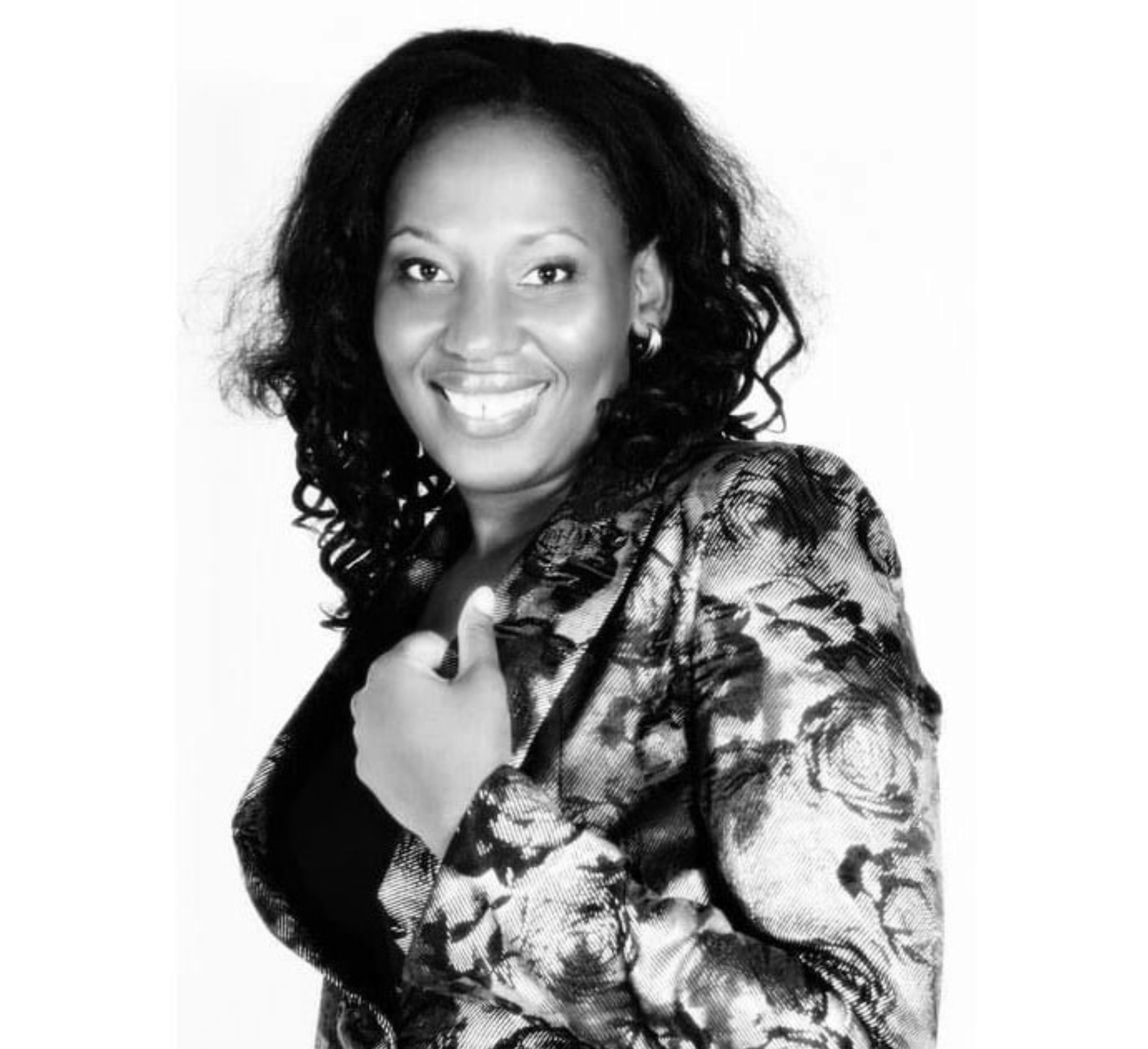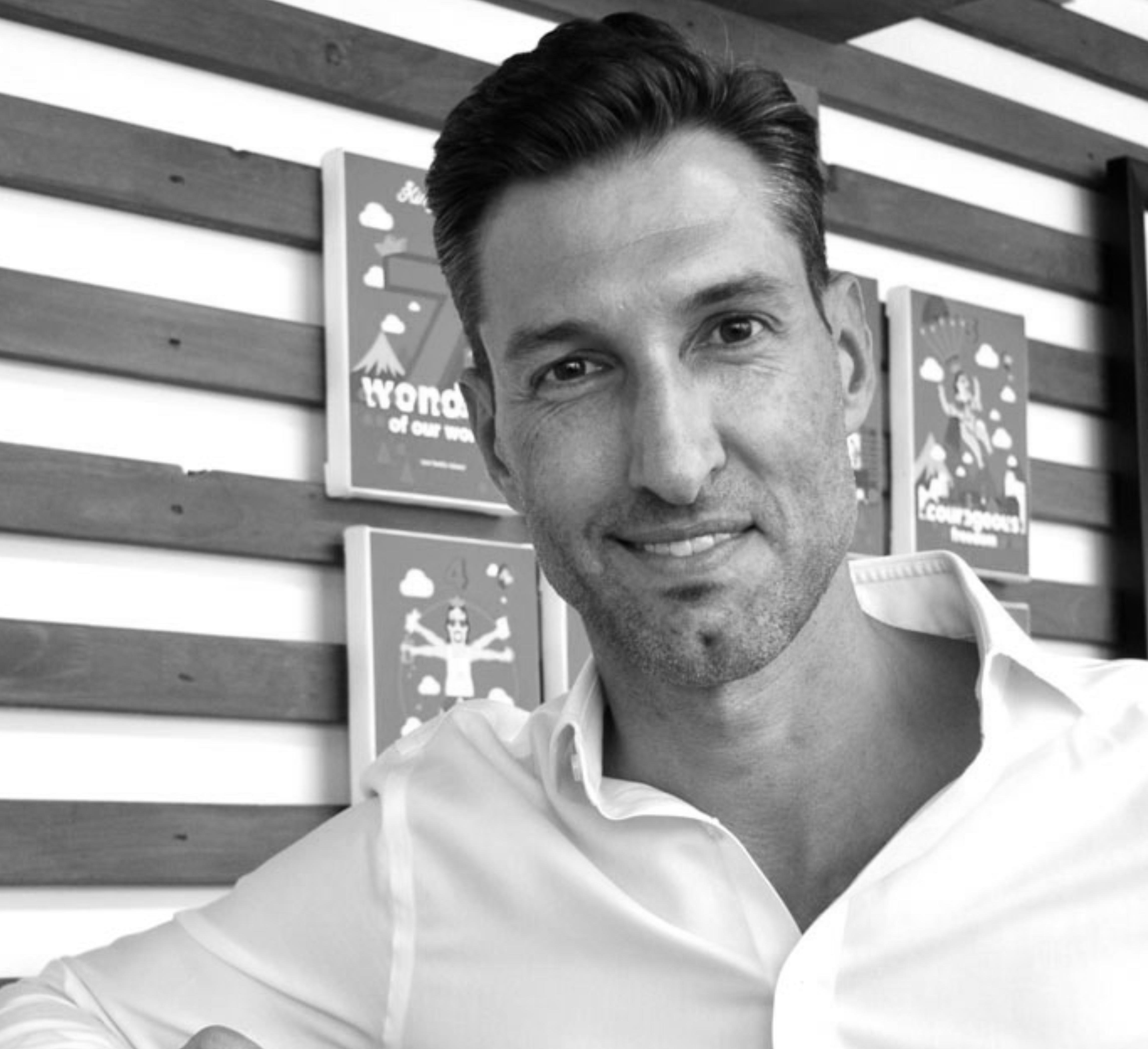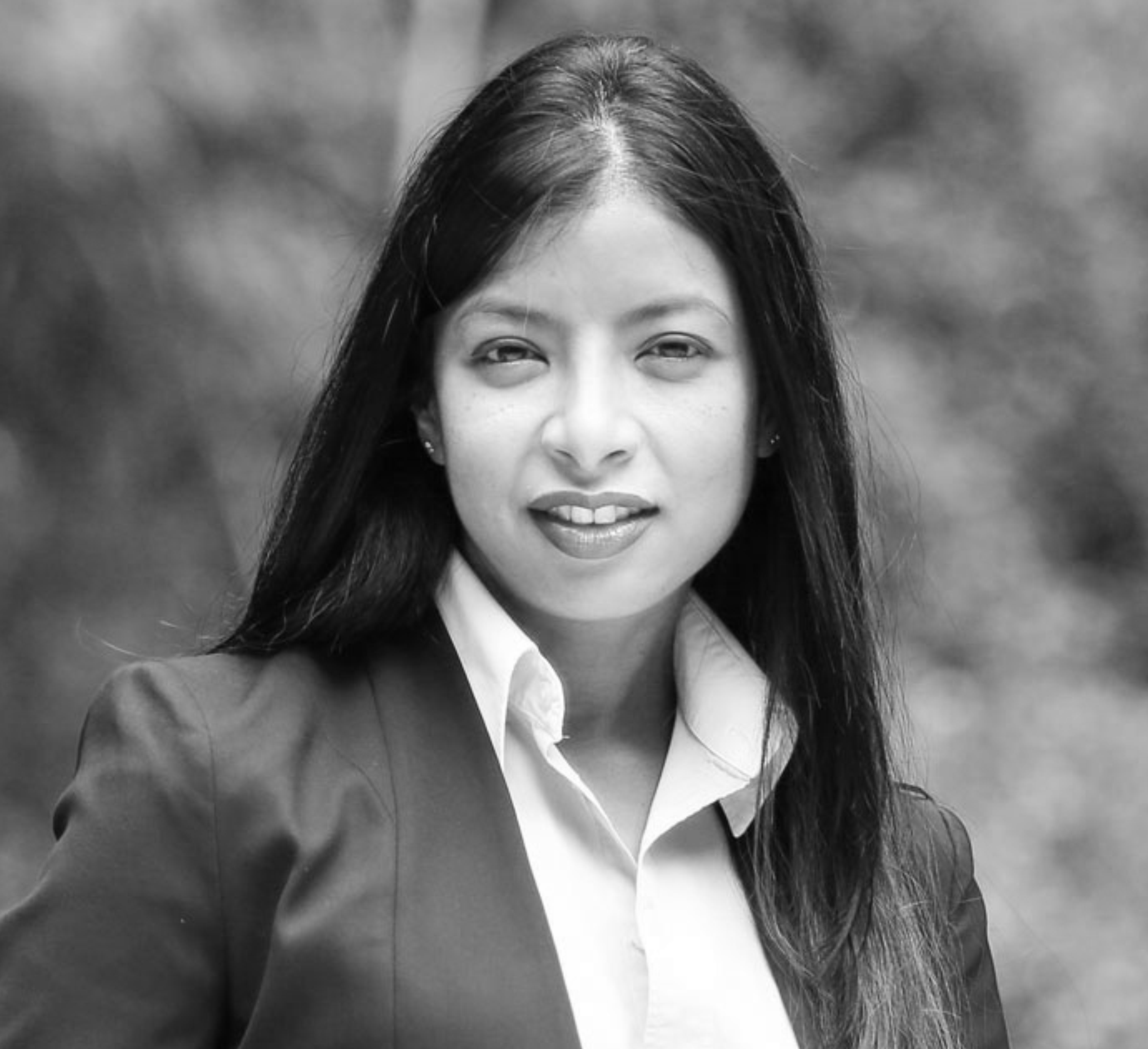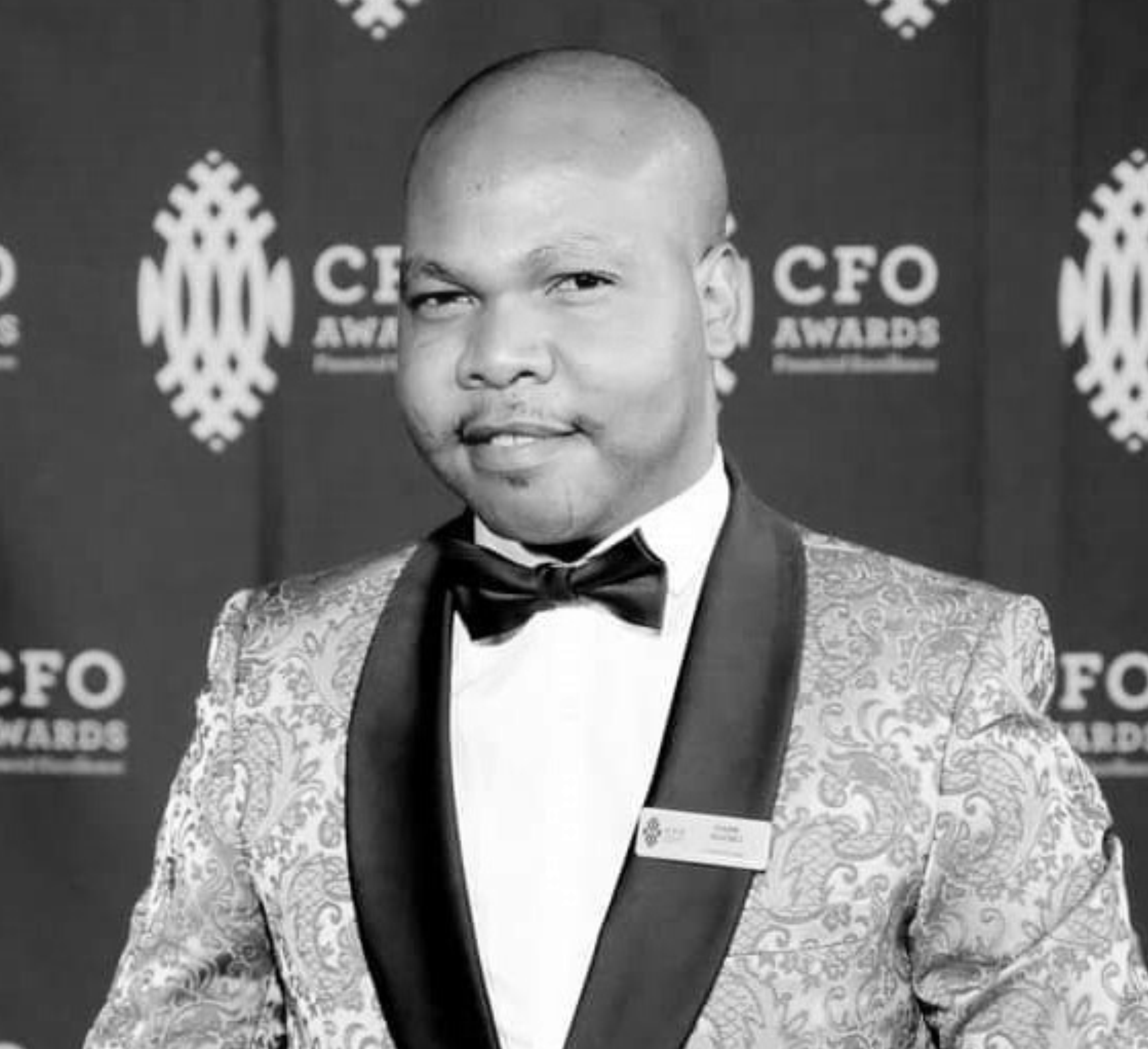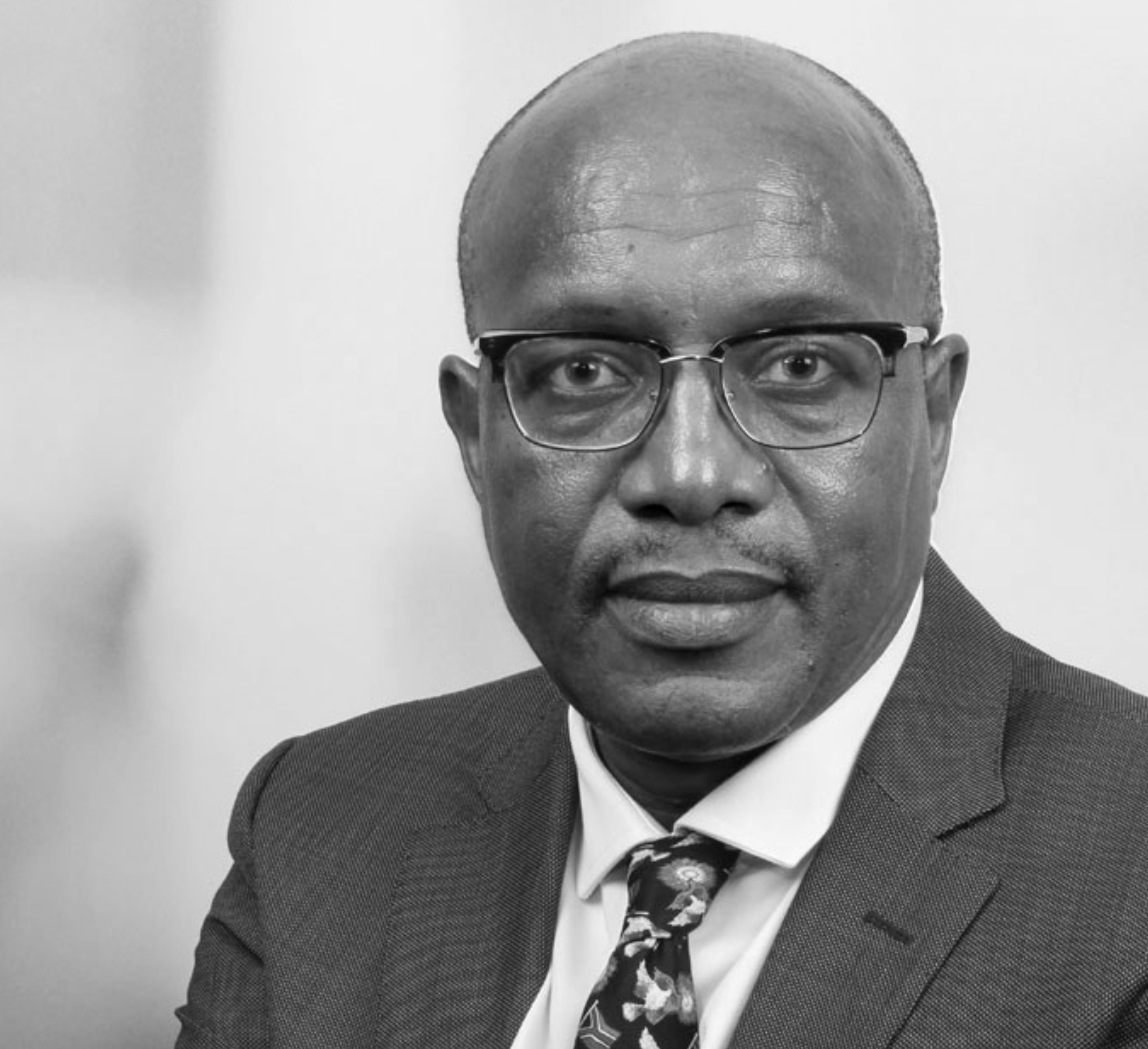122: Prosperity Zondi
A Winning Strategy to Work for Winning Companies
Prosperity Zondi always aimed to work for some of the most elite companies and through hard work and determination, she achieved her goal. Now this finance executive has a love for technology and a heart for giving back to her community.

CIARAN RYAN: Today’s podcast is sponsored by Draftworx, which provides automated drafting and working paper financial software to more than 8000 accounting and auditing firms and corporations. CFO Talks is a brand of the South African Institute of Business Accountants. I’m very happy today to welcome Prosperity Zondi, who is Finance Executive at BCX IT Solutions, which provides IT solutions to companies in the private sector, as well as the public sector. She’s a member of CIMA, the Chartered Institute of Management Accountants and has an MBA from MANCOSA Prior to that, Prosperity was finance director at Oracle, South Africa, where she was responsible for strategic financial management across the region. She spent most of her career in the IT and telecom space. Having worked with Ericsson South Africa and MTN, and she even had a stint early in her career at Anglo American as an assistant financial accountant. First of all, welcome Prosperity, where are we talking to you from? Which part of the country are you in?
PROSPERITY ZONDI: Thanks for having me. I’m talking from Johannesburg.
CIARAN RYAN: You’re based in Johannesburg, okay. It’s good to have you on CFO Talks, tell us a little bit about BCX IT Solutions and what it does. It’s a name that’s well known in South Africa, but for people outside South Africa it may not be that well known.
PROSPERITY ZONDI: BCX is an end-to-end service provider of consulting, implementation and outsourcing services, which are strategically aligned to fit the purpose, cost effective and optimise for performance. BCX is fully owned by Telkom, most people will know Telkom more than BCX. Telkom acquired BCX in 2015, IT Solutions is the IT wing of Telkom, we’ve got enterprise application, specialised solutions, which includes IOT, cybersecurity, retail, and then Optane includes your infrastructure in the cloud, your data centre infrastructure, storage, network services with Orchard Digital Solutions, which offers digital strategy, digital transformation, modernising the IP. Lastly, we’ve got [? 3:05] services will provide software, if you notice for Dischem and Clicks, all the blue screens are provided by BCX, also Woolworths and Checkers, all the software for POS is provided by BCX.
CIARAN RYAN: So it’s 100% owned by Telkom.
PROSPERITY ZONDI: Yes, it’s 100% owned by Telkom.
CIARAN RYAN: And I think at one time BCX was listed on the stock exchange, was it not?
PROSPERITY ZONDI: Before it was Business Connexion, prior to being acquired by Telkom.
CIARAN RYAN: Okay, maybe just expand on that a little bit and explain to our listeners what are some of the challenges you’ve had to face during the last year as a result of Covid. For example, are you working from home, how are you interacting with your team and do you still have offices or have you scaled those back? Tell us a little bit about that.
PROSPERITY ZONDI: The world has never been more interconnected and this pandemic has affected the whole world, and we are no exception at BCX, together with Telkom. One of the key challenges was the safety of our employees and our customers. So from March 2020 we were on level five, and even now we’re still on level five, which means we’re working from home, which challenges the way we manage the business, the way we manage our employees and the way we interact with our customers. We had to cancel a lot of our events and lots of conferences, which meant less leads for new businesses. We were forced to lower our revenue prediction, we had to revisit our short-term and long-term goals as a business. But the key then was how then do we remain competitive in the midst of this pandemic because it doesn’t look like it’s a short-term challenge. You would recall that as an ICT company, we are supporting both the winners and the losers, by that I mean that some of our customers have been hard hit by Covid and who have to ask for payment breaks, who have to ask to be released from their long-term contracts. Then there are those who are winners and by that I mean companies that are supporting digital communication because there’s an increased demand in that space, and we’ve seen exponential growth. But when we look at the net impact, most companies have been negatively affected, and indirectly we are affected.
CIARAN RYAN: Overall, has it been positive, negative or pretty much the same in terms of revenue, just taking top line revenue?
PROSPERITY ZONDI: We had to revise down our revenue projections, so it has been a negative impact. If you look at the context of South Africa, the South African economy wasn’t doing well before the pandemic and the pandemic made it worse.
‘I would say this has been the most challenging part of my career by far.’
CIARAN RYAN: Okay. I see you were previously at Oracle and you worked at MTN and Ericsson, so you’ve got quite a track record there in the IT space, and also telecommunications. Having worked at all these different companies, a lot of them, of course, working across many different jurisdictions, there would be some challenges in that, what would you say were the most challenging assignments of your career?
PROSPERITY ZONDI: I would say my current role has been the most challenging one of them all because when the pandemic happened, the function of the CFO or finance has changed over time, and for us to remain relevant as the finance profession, we had to reinvent ourselves and we had to transform. Before, we were expected to just look at the financial performance of the organisation but now more is expected from the finance function. We are expected to be the strategic partner, we are expected to take a lead in executive decisions, we are expected to provide direction on commercial agreements and we are expected to have deep industry and deep expertise in the organisation in which we operate, not just finance but we need to know the operation of the organisation that you are currently supporting. You need to be a change agent, while still expected to manage the financial performance of the organisation. So we’re in the process of implementing S/4, migrating from ECC to S/4, so that we can focus more on providing insight, more than just giving an Excel presentation that the rest of the organisation doesn’t understand. So we have to do that remotely and working with different service providers, we have to manage the service providers who are implementing the solutions, we have to play a role of being a change agent. I also have to manage stakeholders, not just BCX stakeholders but also managing group stakeholders from Telkom to ensure that there’s alignment in what we are implementing and the future direction that the group is taking. Obviously, when you introduce change for the purpose of optimising the way we work, you do face some resistance, people have a habit of repetition, and immediately when you are transforming the way the finance function has been doing things, you face lots of resistance. Life sometimes never prepares you that you’ll spend the majority of your time just managing stakeholders and managing people more than what the finance profession has taught you. I would say this has been the most challenging part of my career by far.
CIARAN RYAN: A lot of CFOs and finance executives would agree with you, this last year has been unlike anything that they’ve ever experienced, and they’ve really had to, as you say, reinvent themselves because customers are, something that you mentioned earlier, trying to release themselves from long-term contracts, trying to cut back on costs themselves. So there’s been a real big hit on the revenue line and, of course, that translates then into profits as well. But just drilling down a little bit deeper on that, as a finance executive where are you spending most of your time? Is it people issues, is it compliance, strategy or is it developing new revenue streams? What is the thing that takes up most of your time?
PROSPERITY ZONDI: Things have really changed and what is expected from the finance role is what the bulk of the education never prepares you for. I spend most of my time being a strategic partner and managing people, managing stakeholders, taking a lead in making sure that we are crafting a strategy that is agile enough to meet the current demands. Working with stakeholders, persuading in the right direction, most of my time is strategy, working with different stakeholders. The good thing is I have got a very equipped team who support me with the day-to-day financial transactions, operational finance, that is still important, but I have got my team who are doing that, which allows me the space to be a strategic partner to my CEO.
CIARAN RYAN: You’ve mentioned that you’ve now started to use these data-driven tools, I think you mentioned S/4. This is something that is quite interesting that is happening across the world, where CFOs and finance executives are expected to provide this great level of intelligence, is this something that is really coming from the strategic side of the business?
PROSPERITY ZONDI: Yes, it is coming from the strategic side of the business because when you do surveys and ask what is expected from finance, it’s not just the numbers but they are expecting you to be a strategic partner, and you can’t be a strategic partner if you don’t understand the operations of the business. So you do have to have deep industry knowledge, understand what is it that our customers want. I never thought when I was training that it’s going to be my responsibility to understand what customers want. I thought my responsibility is just to report on financial performance but over time the function has drastically changed and the expectation from the business has changed, and is demanding us to transform ourselves in order to remain relevant. Something like S/4 automates lots of functions that the finance team would normally spend their time on. So most of the things are automated to give us enough space to provide insight to the business, to say what these numbers mean, so what should we do to be part of the solution, more than just reporting on the after effects to influence the activities of the day-to-day organisation. So that by the time we see the results, we have been part of the journey,
CIARAN RYAN: Interesting point you make there about the whole strategic direction. One other question I wanted to ask you, is there a bit of pressure given the fact that there’s a bit of a hit on revenue to develop new revenue streams? Are you looking for new opportunities, is that part of your remit?
PROSPERITY ZONDI: My function means you take a lead in the strategic direction of the organisation and part of that is how do we reinvent ourselves to make sure that we get new revenue because we can’t sit and fold our arms and saying, we know there’s pandemic, but we have to remain competitive, we must be agile enough to take new opportunities. It’s more like we all have to be entrepreneurs and innovate in how we do things, in how we’re going to grab the new revenue. Yes, it’s part of my job, which is one of the things that can surprise you, that when you are training to be a finance professional you thought I’m not in sales, you never thought that should be my responsibility, but you’d be surprised how much it takes your time to say, how do we get new revenue?
You don’t have conferences where salespeople will get leads, but then what? It means we have to come up with a solution.
CIARAN RYAN: And I suppose that’s one of the reasons why you did an MBA because that would expose you to a whole lot of other disciplines that you’re not going to get as an accountant.
PROSPERITY ZONDI: Exactly, that is so true. Even when I did my MBA, I graduated in 2011, and they never prepared us for Covid, let alone the finance training. It just never prepares you that you have to manage stakeholders, it never prepares you about emotional intelligence, it never prepares you that you have to deal with people, it never prepares you about how important it is for you to be able to communicate well and to the stakeholders in a manner that they understand, because if they don’t understand, they won’t have a buy in. You can have an excellent strategy, but if it is not communicated, no one will have a buy in as a result. It will only remain on paper and you’ll never see the results. So these are all the things that you get from an MBA and continuous improvement of yourself as a finance professional.
‘As a CFO, you must make sure that the moral compass of the organisation remains intact.’
CIARAN RYAN: You’ve just touched on something there about communication and this, of course, is a critical skill in your position or any finance executive, you have to take a complex scenario and be able to break it down into very simple terms so that the person on the factory floor can understand it. That kind of communication is really quite a gift or it’s something that you develop. There have been studies done, which looked at what are the competencies required of a CFO, there are quite a few academic papers on this. It really has gone a long way from putting together trial balances and that sort of thing. Strategy and communication, team leadership, all of these sorts of things are now very much part of your toolkit. It’s one of the reasons the South African Institute of Business Accountants launched the Certified Financial Officer designation or CFO (SA), which is basically to recognise people with the experience, who’ve acquired these skills through the years, but it’s not something that you’re going to learn in the accounting schools. It’s a question that I wanted to lead on to, are there things that you’re only going to learn through experience and having these challenges? You having been through Covid, as you have over the last year, that’s a level of battle readiness that I think you would never have got if Covid had never come around.
PROSPERITY ZONDI: There are so many things that formal education doesn’t prepare you for. For example, when I was at university, communication was not part of the modules that I did. The ability to influence and persuade your stakeholders, it was not a competency that you learn. The ability to formulate strategy and communicate that strategy, those are not the things that you learn. On a day-to-day basis you’re confronted with lots of decisions that you make. You might’ve seen that our profession has been marked by, I will call it ethical gaps. So every day you need to be awake and we need to make sure that you make ethical decisions because when there’s pressure to gain revenue, you can succumb to doing shortcuts. But as a CFO, you must make sure that the moral compass of the organisation remains intact. So those are all the things that you will not learn from school.
CIARAN RYAN: One of the things you’re not learning at school is IT. Now, this is your profession really. You really have to know about the tools and what’s happening in the world of artificial intelligence, what’s happening in the realm of automation because so many of the audit functions are going to be done automatically in the future, and you’ll have 100% audit samples instead of 2% audit samples. Is this something that you spend a fair amount of time on, just researching what are the technological tools available to you?
PROSPERITY ZONDI: I have to, it’s something I spend a great deal of time on. Like I say, we are implementing S/4. For some functions we have started to implement robotics, we have started to implement artificial intelligence because we have to transform and in order for us to transform, some roles become redundant but if you keep check of the activities, you see that these technologies are there to support you, to be able to do the core thing, which is the finance function must be able to provide insights to the organisation, not just reports, not just data, but to say that when you see revenue is less than the forecast, what does it mean. So being able to communicate, what are your competitors doing, what is the market saying, what are your customers saying, so what is the next step that you should do as an organisation, that has become our function. We can’t do that if we don’t rely on technology to support us, especially on the repetitive tasks, where we can use robotics, we have to do that. We must also always check in the market what is out there that we can employ in the organisation to support us, to do better, to be more effective in our roles.
CIARAN RYAN: All right. Just changing tack here a little bit. Tell us a little bit about yourself and your career path, where you were born and went to school and how you ended up here.
PROSPERITY ZONDI: I was born in KwaZulu-Natal and I did my education there up until matric, in a town called Richards Bay, and then I moved to Durban and attended the University of KwaZulu-Natal. At that time, it was the University of Natal, Howard College, I did my BCom there. While I was at university I was sponsored by Anglo American. As you can see, my early work was with Anglo, serving for the bursary that they gave me. I worked for ABI briefly and then I joined MTN in 2003, I was there for about eight years…
CIARAN RYAN: Were you in Johannesburg with Anglo American? Had you moved to Johannesburg?
PROSPERITY ZONDI: Yes, I was at the Anglo American head office in Johannesburg and then I moved to MTN. When I joined MTN, it’s quite interesting story, I was just browsing the top 20 companies because I had that ambition that I don’t want to work for a losing company. I want to work for a company that wins because in a company that wins, I will definitely be a winner myself.
So I saw this upcoming MTN and when I joined MTN there was no data, there was no internet, it was about voice and SMS, but it was exciting. I had different finance roles and then I moved to Ericsson, where I can an Africa-based role, my role was responsible for the region, which was very interesting. That’s where my love for technology really started, when I joined Ericsson we were at a place where the technologies were converging, where there was no longer telco, IT, these things are so interconnected, and to see what else we are doing in different parts of Africa. Ericsson is owned by a Swedish company based in Stockholm. After that I joined Oracle, which is a software organisation, the headquarters are in the US. These things are so interconnected, you won’t believe that in every organisation that I’ve worked in, it’s the same customers but just different products. You can’t tell that this is telco, this is IT, we are so interconnected.
CIARAN RYAN: Even though you had changed companies, were you dealing with many of the same customers?
PROSPERITY ZONDI: Yes, interestingly so. When I joined Ericsson, one of their big customers was MTN. When I joined Oracle, one of their big customers was MTN but different products.
CIARAN RYAN: It’s a very tight and closed industry, I guess?
PROSPERITY ZONDI: Yes, now Oracle is working very closely with BCX, it’s just so interlinked. One thing about the ICT industry, it’s so deep, there are so many parts of it. That’s why I like it and that’s why it’s interesting to me because there’s no day that is similar to another. There’s always something new to learn.
‘I believe I am where I am because somebody took me along through mentorship.’
CIARAN RYAN: Tell us about what you do in your downtime, what do you do to relax?
PROSPERITY ZONDI: I spend time with my kids, I’ve got two girls, a nine-year-old and a seven-year-old, and I’m very volved in my local church, and then also community service. I’m very passionate about a girl child equipping themselves, exploring opportunities, getting out there and sharing my experience. I believe I am where I am because somebody took me along through mentorship and I’m giving back to community from the skillsets that I have, and exposing them to different opportunities that already exist in the industry. There are people who, who want to pursue entrepreneurship and for me, I never knew that was an option. I thought when I went to university that I’m going to university so that I can get employment. So I’d like to offer upcoming people opportunities to say, look, you don’t go into business because you can’t get a job, you can explore that if it’s something you are really passionate about. Just to connect people to show them how do you do your own business plan, how do you apply for funding. I am passionate about giving back to the community because someone believed in me. My parents wouldn’t have been able to pay for my university, I had a bursary that enable me to go from high school to university. So it’s very fulfilling for me to spend time giving back and, together with my husband, we share an NPO that offers kids from primary to high school and we offer families who are struggling, we offer them food, we work with different organisations who provide us with food and clothing. We also give from our own clothing as well.
CIARAN RYAN: That’s stunning that you’re doing that. So many people that I have spoken to on CFO Talks, particularly who come from rural areas in South Africa, when you ask the question, what got you into accounting, it was this mentorship thing that you’ve just been talking about. Somebody came to the school and spoke about accounting and brought it to life, and what is accounting, and it’s been described in so many wonderful ways. It’s telling a story of a business in figures, it is the art of good order, it is all of these things. When people get somebody like that who explains it in a way that really communicates to them, they become quite passionate about accounting and a lot of them have gone on to achieve great success. So my question to you is, so you’re doing this and you’re inspiring some of the young girls, how do you do that? Do you go to schools or do you do that more through mentorship in the organisation? How does that work?
PROSPERITY ZONDI: It’s twofold, I do mentor a lot of people in my organisation and outside the organisation. I get requests on social media, can you please mentor me, your journey is inspiring, I also want to reach the level you have attained in the organisation. But we deliberately go to underprivileged communities, I stay in Fourways, so we go to Diepsloot and because we are coming with food and clothing, we then get the opportunity to talk to the girls to find out what are your aspirations, what do you want. My journey didn’t start when I finished matric, I had that deep desire that I want to go to university, so I was working extra hard. When the information presented itself but it meant someone who was prepared because you find with other people that they go up to matric, somebody doesn’t have an ambition, somebody has not decided what they want, they are not reading, especially now, we find that people have got data but they’re just on Instagram or Facebook, and not use that data for informative things to say, what other career opportunities are there. My husband is a pastor, so I support him with that way of social relevance for our communities. So I come from the spiritual side and then I come from day-to-day grooming of women, and sometimes men. If men are there I don’t discriminate but I am just passionate as a female to say, how do I bring other underprivileged females who came from deep rural areas, from poverty, and break that cycle. The fact that you are born in a poor family doesn’t mean that you must die there.
‘Sometimes there’s a very thin line between being ethically correct and being corrupt.’
CIARAN RYAN: It’s also interesting that you’ve already indicated you’re a person of faith and your husband is a pastor and, of course, ethics is very much at the core of the accounting profession. You find a lot of people of the Christian faith find this is a perfect marriage because this debate, there are so many papers written about ethics and how to conduct yourself as an accountant and how to withstand pressures to turn the other way or falsify figures and that kind of thing. It’s an endless subject, I’m sure you’ll agree, in accounting. Whereas people who are maybe a little bit more spiritually grounded seem to have this quality a little bit more natively built into them. What do you think about that?
PROSPERITY ZONDI: I couldn’t agree with you more because you must have a personal conviction of certain things as an accountant or as a finance person because, like I said before, we are faced with decisions that we need to make on a day-to-day basis but sometimes there’s a very thin line between being ethically correct and being corrupt. Sometimes corruption will not come to you written in bold words that this is corruption, but your ethical compass within you must kick in to tell you that this is right or this is not right. If you don’t have that within you, then you can find yourself compromising on your ethics for the sake of short-term gains, especially when you are under pressure.
CIARAN RYAN: Yes, it’s such a fascinating subject, the whole thing about ethics and accounting. Final question here because we are out of time, are there any books that you would recommend, something that really grabbed you or inspired you?
PROSPERITY ZONDI: Yes, I have just finished a book called Betting on a Darkie: Lifting the Corporate Game by Mteto Nyati. It’s e very inspiring book, he talks about his journey because I like to look at other people who have made it but I want to know how did you go about it, especially because he’s in a similar industry as myself. I would recommend for anyone to read that book. Then I also read The 80/20 CFO: How to Make Strategic Transformations in Your Company by Janice Berthold and Suzy Taherian. It’s a very insightful book, if you are aspiring to be a CFO then it’s a good book to read. Another one is The Successful CFO by Tony Tripodo, it’s an exciting book to read, there are so many pockets that are still relevant in our day-to-day lives.
CIARAN RYAN: The Successful CFO, give us one or two takeaways from that, that you got.
PROSPERITY ZONDI: I think one of the things is that the CFO function has changed to that of a strategic partner, and the importance of technology in your function as a CFO.
CIARAN RYAN: Exactly as we’ve been talking about now, the changing role of the CFO and the extra skills that you have to bring to the position. I can see your children in the background, so they are keeping you busy at all times during the day and night.
PROSPERITY ZONDI: [Laughing] I ask them to be quiet but they leave the whole house just to be next to my office.
CIARAN RYAN: Yes, it happens when you’ve got children. We’re going to leave it there, Prosperity, thank you so much for coming on and sharing those insights. I have found it extremely interesting and informative, and I think our listeners will get a lot that they can take away from it. Also sharing your story, your journey, coming from where you did to where you are today, and the fact that you’re now giving back and you’re sharing your information, and you’re doing that in a spiritual way and in a physical way, that is something I find very, very touching that people are doing that kind of thing. So it really is returning back to the community and I applaud you for doing that, and I’m sure other people will take inspiration from that as well.
PROSPERITY ZONDI: Thanks for having me, it was an honour to share my story with you.
CIARAN RYAN: Thank you so much. That was Prosperity Zondi, who is Finance Executive at BCX IT Solutions.

